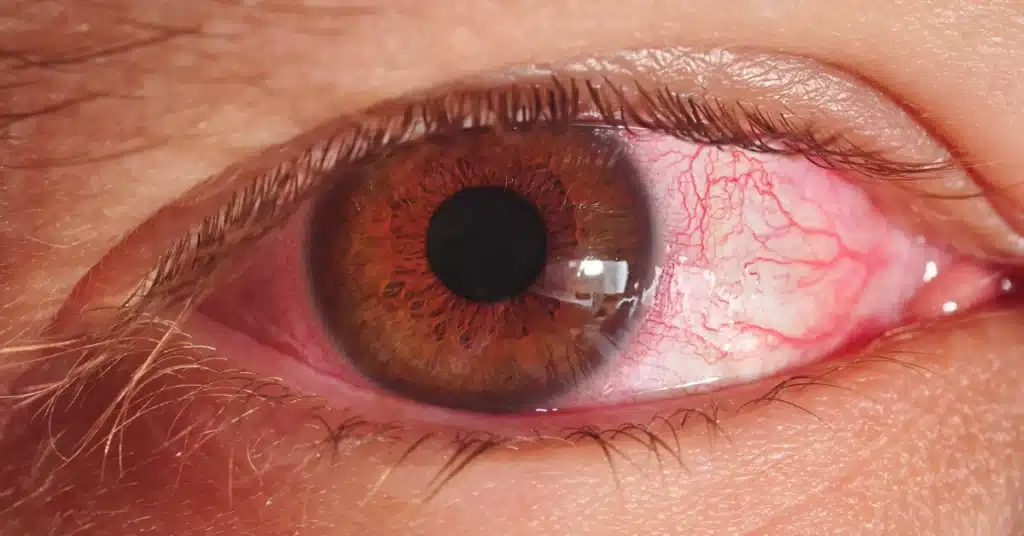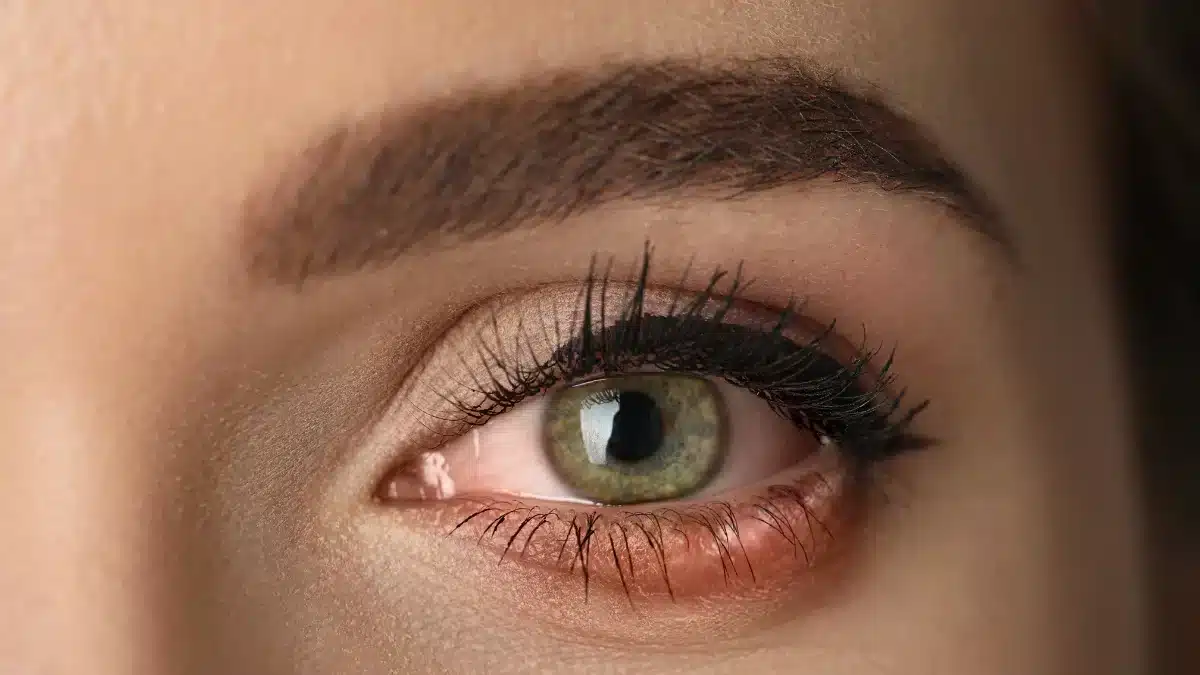Red Eyes are a common symptom of several ocular health issues like Dry Eye, Pink Eye, and more.
However, many people are curious: Can your eyes get red due to allergies?
Yes, allergic reactions can affect the eyes and cause Red Eye, itching, and discomfort.
Let us explore the reasons behind Red Eyes from allergies and ways to manage the common condition.
Causes of Red Eyes from allergies
An allergic reaction is the body’s immune response to allergens, which are mostly harmless substances.
These allergens can lead to Red Eyes by triggering an inflammatory response when they come into contact with the eyes.
The common causes of Red Eye from allergies include:
- Pollen
- Pet dander
- Dust mites
- Mold spores
- Smoke
- Certain foods
The immune system releases Histamines when these allergens come into contact with the eyes.
The blood vessels in the eyes dilate and lead to red itchy eyes.
However, the severity of the reaction varies from person to person. Consult a doctor for allergy analysis and follow the doctor’s instructions.
Symptoms of Red Eye allergy
Eye allergies may show many symptoms other than the Red Eye.
The common symptoms of eye allergy are:
The above symptoms can make individuals affected by Red Eye allergies uncomfortable.
Also, the itching sensation can lead to increased rubbing, which may further irritate the eyes.
Consult a doctor if the symptoms are constant or severe.
How to get rid of Red Eyes from allergies
 Source: dtimiraos_from_Getty_Images
Source: dtimiraos_from_Getty_ImagesThe treatment options for Red Eye allergy include oral Antihistamines and prescription eye drops.
Antihistamines can help manage systemic allergy symptoms. The medicine works by blocking the effects of Histamine.
Common Antihistamines for Red Eyes include Cetirizine, Loratadine, and Fexofenadine.
However, the doctor may also prescribe eye drops for advanced cases of eye redness.
The eye drops may contain Corticosteroids or other anti-inflammatory medications.
One can also use a cold compress to help soothe red and irritated eyes.
Use a clean cloth soaked in cold water and place it over closed eyes for 15-20 minutes.
Also, a person should always be careful and avoid allergens, wear protective eyeglasses, and use allergy-friendly products.
Consult a doctor for a proper treatment plan and prevention measures.
Key takeaways
Allergic reactions are when one’s immune system reacts to allergens.
The allergens can come into contact with the eyes and lead to Red Eyes by triggering an inflammatory response.
The other common symptoms of eye allergy are eye pain, irritation, itching, and more.
Also, the common causes of Red Eye from allergies include pollen, pet danders, dust mites, and more.
Understanding the symptoms and causes of Red Eyes from allergy is important for effective management.
The treatment options for Red Eye allergy include oral Antihistamines and prescription eye drops.
Frequently Asked Questions
How long do Red Eyes last from allergies?
The duration of Red Eyes from allergies varies, as the Red Eyes may last as long as one is exposed to allergens. However, the symptoms may reduce within a few hours once you are no longer exposed to allergens.
What are common allergens that cause Red Eyes?
Common allergens that may cause Red Eyes include pollen, pet dander, dust mites, mold spores, and certain foods. These allergens trigger an immune response when they come in contact with the eyes. The condition can lead to eye redness, itching, and discomfort.
What are the best home remedies for Red Eyes from allergies?
The best home remedies for Red Eyes from allergies include applying a cold compress to reduce inflammation or using preservative-free artificial tears for lubrication. Additionally, one should follow proper hygiene to help relieve the symptoms of allergic reactions.
Can I wear contact lenses with eye allergies?
No, it’s advisable to avoid wearing contact lenses during eye allergies. Allergens can be collected on lenses and increase the risk of infection. Consult an eye doctor before wearing lenses.
How can I get rid of Red Eyes from allergies?
The treatment options for Red Eye allergy include oral Antihistamines and prescription eye drops. Antihistamines can help manage systemic allergy by blocking the effects of Histamine. However, the doctor may also prescribe eye drops for advanced cases of eye redness.
When referencing outside resources, GoodrxMedicine always provides full citations. To learn more about the measures we use to maintain the quality of our content, please review our Content Information Policy.











